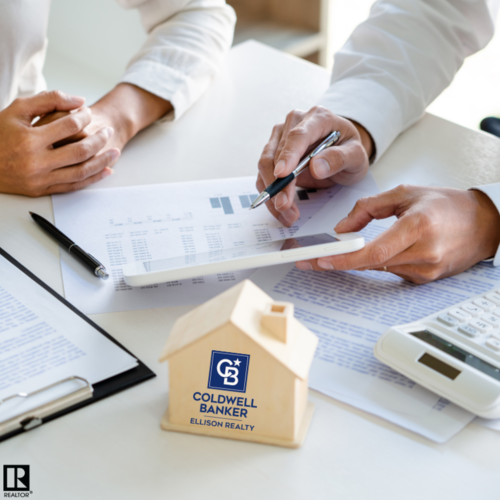How Florida Insurance Premiums Are Shaping the Real Estate Market
Florida’s beautiful weather and vibrant communities make it a desirable place to live, but rising insurance premiums are having a significant impact on the real estate market. These premiums don’t just affect how much a home costs to own—they can also influence a buyer’s decision on which home to purchase. Choosing the right property can help buyers save money on their monthly mortgage payments by reducing insurance costs. Here’s how factors like roof age, AC systems, and hot water heaters come into play, and why understanding them is essential.
Why Insurance Premiums Are Rising in Florida
Florida homeowners face some of the highest insurance premiums in the country due to:
- Hurricane Risk: The state’s susceptibility to hurricanes and tropical storms increases the likelihood of insurance claims, raising costs.
- Aging Infrastructure: Older homes with outdated roofs, HVAC systems, or hot water heaters pose greater risks for insurers.
- Flood Zones: Properties in high-risk flood areas require expensive flood insurance.
These factors mean that buyers must consider more than just the sticker price of a home. Total affordability now includes monthly insurance premiums, which can vary widely depending on the property’s condition and location.
How Insurance Premiums Impact Mortgage Costs
Insurance premiums are typically escrowed into your mortgage payment. A higher premium increases your monthly housing costs, even if the home’s purchase price is within your budget. On the flip side, choosing a home with features that reduce insurance premiums can make a higher-priced property more affordable.
Scenario: Comparing Two Homes with Different Conditions
- Home A: $300,000 purchase price, $4,000/year insurance premium (older roof and outdated systems).
- Mortgage: $1,710/month (5% down, 6.5% interest)
- Insurance: $333/month
- Total Monthly Cost: $2,043/month
- Home B: $325,000 purchase price, $1,800/year insurance premium (newer roof, updated systems).
- Mortgage: $1,855/month
- Insurance: $150/month
- Total Monthly Cost: $2,005/month
Even though Home B costs $25,000 more upfront, it’s $38/month cheaper overall because of lower insurance costs. Over a year, that’s a savings of $456—and over 30 years, it’s over $13,000, without the cost of potential having to replace a Roof and A/C which well cover next!
Key Factors That Influence Insurance Costs
- Roof Age and Condition
- Impact: The roof is one of the most significant factors affecting insurance premiums. Roofs older than 15 years often lead to much higher premiums or may even require replacement to secure coverage.
- Replacement Cost: Replacing a roof in Florida typically costs between $10,000 and $20,000, depending on the size and materials.
- Savings: A new roof with hurricane straps or wind-resistant materials can qualify for significant discounts on windstorm coverage.
- HVAC System (Air Conditioning)
- Impact: Older AC systems are less energy-efficient and more prone to breakdowns, which increases risk for insurers.
- Replacement Cost: Replacing an AC system in Florida averages between $5,000 and $10,000.
- Savings: A modern, energy-efficient system reduces insurance premiums and saves on energy bills.
- Hot Water Heater
- Impact: Insurers look at the age and condition of the hot water heater because old or faulty systems can cause water damage.
- Replacement Cost: Installing a new water heater typically costs $800 to $2,000, depending on the type.
- Savings: New systems with safety features like automatic shut-off valves can lower premiums and prevent costly water damage.
Choosing the Right Home to Save Money
When shopping for a home in Florida, look for features that minimize insurance costs:
- Newer Construction: Homes built after 2002 meet stricter building codes, making them more storm-resistant.
- Updated Roofs: Ensure the roof is under 10 years old and made with wind-resistant materials.
- Impact-Resistant Windows: Hurricane shutters or impact glass can lower premiums significantly.
- Modernized Systems: Updated HVAC and hot water systems reduce both risk and energy costs.
- Flood Zone Location: Choose homes outside high-risk flood zones whenever possible to avoid expensive flood insurance.
Why This Matters for Sellers
If you’re planning to sell your home, addressing insurance-related concerns upfront can make your property more attractive to buyers. Investing in updates like a new roof or modernized systems can increase the marketability of your home and potentially command a higher price. Be sure to highlight these features in your listing to show buyers the value of lower insurance premiums.
Florida Real Estate: Balancing Cost and Value
Rising insurance premiums are reshaping the way buyers and sellers approach the real estate market in Florida. For buyers, understanding the total cost of ownership—including premiums, maintenance, and updates—helps ensure you make a financially sound decision. For sellers, proactive updates that reduce insurance costs can make your property stand out in a competitive market.
If you’re ready to navigate Florida’s unique real estate challenges, Coldwell Banker Ellison Realty is here to help. Our experienced team can guide you in finding a home that’s affordable, insurable, and perfect for your needs. Contact us today to get started!


